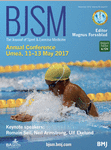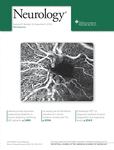 A plastic surgery journal in India has retracted an article about rehabilitation following removal of an eye after a patient contacted the editors to say she hadn’t consented to publish her picture.
A plastic surgery journal in India has retracted an article about rehabilitation following removal of an eye after a patient contacted the editors to say she hadn’t consented to publish her picture.
Mukund Jagannathan, the journal’s editor-in-chief and a plastic surgeon in India, told Retraction Watch:
The patient wrote to the editor, mentioning that her photo was present in the article originally published, and politely asked us to remove her photos from public display on the Internet.
Asked whether the journal considered issuing a partial retraction to only hide the patient’s identity, Jagannathan said: Continue reading Patient didn’t okay including her picture in plastic surgery paper

 Circumcision is a hot topic. So hot, questions about a reviewer’s potential conflict with the author of an article promoting circumcision prompted a journal editor to resign, and one academic to call another a “fanatic.”
Circumcision is a hot topic. So hot, questions about a reviewer’s potential conflict with the author of an article promoting circumcision prompted a journal editor to resign, and one academic to call another a “fanatic.”  In March, 2013, a graduate student joined the lab of a prominent researcher in Australia, investigating new therapies for Parkinson’s. A few months later, everything fell apart.
In March, 2013, a graduate student joined the lab of a prominent researcher in Australia, investigating new therapies for Parkinson’s. A few months later, everything fell apart. 



 A new analysis of more than 30 clinical trials co-authored by a bone researcher based in Japan is casting doubt on the legitimacy of the findings.
A new analysis of more than 30 clinical trials co-authored by a bone researcher based in Japan is casting doubt on the legitimacy of the findings.